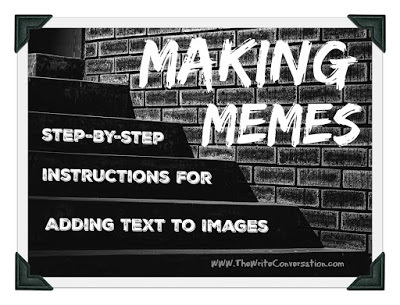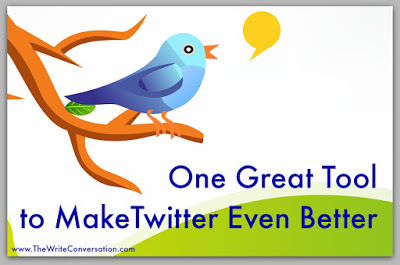Edie Melson's Blog, page 348
March 22, 2016
One of the Best Ways to Learn About Writing
by Eva Marie Everson @EvaMarieEverson
 One of the Best Ways to Learn About WritingI’m often asked what book or workshop or set of studies I dove into in order to learn how to write fiction.
One of the Best Ways to Learn About WritingI’m often asked what book or workshop or set of studies I dove into in order to learn how to write fiction.
The answer is simple: none.
Oh, granted, I’ve read books and attended workshops and spent hours studying … but that’s not how I learned to write fiction.
Instead I taught myself by sitting in front of the television with a (then) VHS remote in one hand and a pen poised over a notebook in the other. I recorded television shows like Matlock and Murder, She Wrote (the plots are simple) as I watched them for the “first viewing.” Then, using the remote, I played the shows back, stopping at the end of each scene to write what plot points had occurred, what new characters had been introduced, what we knew about them, etc.In the process, I noted a pattern.
I eventually graduated to movies—short ones, long ones, it didn’t much matter—and shows like BBC’s Midsomer Murders, which has some of the best plotting I’ve ever seen.
 Blue Ridge Mountains Christian Writers ConferenceSeveral years ago Alton Gansky—then the director of Blue Ridge Mountains ChristianWriters Conference—asked me to teach a fiction practicum—hours upon hours of delving into the art of writing fiction. I decided I’d go back to my roots, teaching the way I’d taught myself. Of course, adding in what I’d learned along the way.
Blue Ridge Mountains Christian Writers ConferenceSeveral years ago Alton Gansky—then the director of Blue Ridge Mountains ChristianWriters Conference—asked me to teach a fiction practicum—hours upon hours of delving into the art of writing fiction. I decided I’d go back to my roots, teaching the way I’d taught myself. Of course, adding in what I’d learned along the way.
The results were more than I could have hoped they’d be. The following year, I repeated the on-going class, which I’d limited to ten, and had a waiting list besides.
Year after year (and they’ve not been that many) I’ve offered the class using a movie to teach the art and, year after year, I’ve had a waiting list.
Bottom line is—the method works. More fun in a group, of course, but that doesn’t mean you can’t “try this at home.”
 Grab your remote and favorite DVD.Grab a favorite DVD or go to YouTube.com, etc. First, watch the movie. Then write down the names of the main characters. Now, watch the film scene by scene. Ask yourself: Why did the character do that? What motivated them? How has the plot changed because of their actions? Etc.
Grab your remote and favorite DVD.Grab a favorite DVD or go to YouTube.com, etc. First, watch the movie. Then write down the names of the main characters. Now, watch the film scene by scene. Ask yourself: Why did the character do that? What motivated them? How has the plot changed because of their actions? Etc.
Or, if you can, join me for the Fiction Practicum at Blue Ridge Mountains Christian Writers Conference. I limit the attendance to ten and, yes, we do have a few spots available. Here’s what you can expect me to cover:
The First Three Things to ConsiderInternal and External ConflictsCharacter ArcsThe Seven “Issues”Time LinesDialogueTitle Pages, Hooks, & “The Four Questions” (No, this is not an introduction to Passover.)Get your red pens ready because we’re also going to work on your manuscript. You must sign up in advance, and bring ten copies of your first 1,000 words, as well as one page that is heavy with dialogue. Be ready to discuss concept to completion ideas, titles, and possible avenues for publication. Hands on, loads of fun, and chocolate is involved.
To join us, contact me by email: PenNhnd@aol.com. I’d enjoy seeing you there!
TWEETABLES
One of the best ways to learn about writing - @EvaMarieEverson (Click to Tweet)
The point of the #writing practicum - @EvaMarieEverson (Click to Tweet)
 Eva Marie is a multiple award-winning author and speaker. She is one of the original five Orlando Word Weavers critique group members, an international and national group made up of critique chapters. She served as the original president from 2000 to 2007 and is now president of Word Weavers International, Inc. Eva Marie served as a mentor for Jerry B. Jenkins Christian Writers Guild for several years and has taught at a number of writers conferences nationwide. During the 2010-2011 school year, Eva Marie served as an adjunct professor at Taylor University in Upland, Indiana. She describes it as one of the best times she ever had while working. Eva Marie also serves as director of Florida Christian Writers Conference (along with Mark Hancock) and the Education Consultant for SON Studios.
Eva Marie is a multiple award-winning author and speaker. She is one of the original five Orlando Word Weavers critique group members, an international and national group made up of critique chapters. She served as the original president from 2000 to 2007 and is now president of Word Weavers International, Inc. Eva Marie served as a mentor for Jerry B. Jenkins Christian Writers Guild for several years and has taught at a number of writers conferences nationwide. During the 2010-2011 school year, Eva Marie served as an adjunct professor at Taylor University in Upland, Indiana. She describes it as one of the best times she ever had while working. Eva Marie also serves as director of Florida Christian Writers Conference (along with Mark Hancock) and the Education Consultant for SON Studios.
She is both a past and current student at Andersonville Theological Seminary where she plans to receive her Masters in Old Testament Theology sometime before her ninetieth birthday. Eva Marie and her husband make their home in Central Florida where they are owned by one very spoiled dog, a funky chicken, and two hearts-full of grandchildren.
*Carol Award Winner for The Potluck Club**ICRS Gold Medallion Finalist***Multiple awards, including 2012 Inspirational Readers Choice Award & Maggie Award (Chasing Sunsets), 2013 Maggie Award & 2013 Christy finalist for Waiting for Sunrise, 2014 AWSA Golden Scroll Award (Slow Moon Rising), 2015 AWSA Golden Scroll Award (The Road to Testament)
****CBA Bestseller List several months running and a finalist for Retailers Choice Awards, 2013
 One of the Best Ways to Learn About WritingI’m often asked what book or workshop or set of studies I dove into in order to learn how to write fiction.
One of the Best Ways to Learn About WritingI’m often asked what book or workshop or set of studies I dove into in order to learn how to write fiction. The answer is simple: none.
Oh, granted, I’ve read books and attended workshops and spent hours studying … but that’s not how I learned to write fiction.
Instead I taught myself by sitting in front of the television with a (then) VHS remote in one hand and a pen poised over a notebook in the other. I recorded television shows like Matlock and Murder, She Wrote (the plots are simple) as I watched them for the “first viewing.” Then, using the remote, I played the shows back, stopping at the end of each scene to write what plot points had occurred, what new characters had been introduced, what we knew about them, etc.In the process, I noted a pattern.
I eventually graduated to movies—short ones, long ones, it didn’t much matter—and shows like BBC’s Midsomer Murders, which has some of the best plotting I’ve ever seen.
 Blue Ridge Mountains Christian Writers ConferenceSeveral years ago Alton Gansky—then the director of Blue Ridge Mountains ChristianWriters Conference—asked me to teach a fiction practicum—hours upon hours of delving into the art of writing fiction. I decided I’d go back to my roots, teaching the way I’d taught myself. Of course, adding in what I’d learned along the way.
Blue Ridge Mountains Christian Writers ConferenceSeveral years ago Alton Gansky—then the director of Blue Ridge Mountains ChristianWriters Conference—asked me to teach a fiction practicum—hours upon hours of delving into the art of writing fiction. I decided I’d go back to my roots, teaching the way I’d taught myself. Of course, adding in what I’d learned along the way.The results were more than I could have hoped they’d be. The following year, I repeated the on-going class, which I’d limited to ten, and had a waiting list besides.
Year after year (and they’ve not been that many) I’ve offered the class using a movie to teach the art and, year after year, I’ve had a waiting list.
Bottom line is—the method works. More fun in a group, of course, but that doesn’t mean you can’t “try this at home.”
 Grab your remote and favorite DVD.Grab a favorite DVD or go to YouTube.com, etc. First, watch the movie. Then write down the names of the main characters. Now, watch the film scene by scene. Ask yourself: Why did the character do that? What motivated them? How has the plot changed because of their actions? Etc.
Grab your remote and favorite DVD.Grab a favorite DVD or go to YouTube.com, etc. First, watch the movie. Then write down the names of the main characters. Now, watch the film scene by scene. Ask yourself: Why did the character do that? What motivated them? How has the plot changed because of their actions? Etc.Or, if you can, join me for the Fiction Practicum at Blue Ridge Mountains Christian Writers Conference. I limit the attendance to ten and, yes, we do have a few spots available. Here’s what you can expect me to cover:
The First Three Things to ConsiderInternal and External ConflictsCharacter ArcsThe Seven “Issues”Time LinesDialogueTitle Pages, Hooks, & “The Four Questions” (No, this is not an introduction to Passover.)Get your red pens ready because we’re also going to work on your manuscript. You must sign up in advance, and bring ten copies of your first 1,000 words, as well as one page that is heavy with dialogue. Be ready to discuss concept to completion ideas, titles, and possible avenues for publication. Hands on, loads of fun, and chocolate is involved.
To join us, contact me by email: PenNhnd@aol.com. I’d enjoy seeing you there!
TWEETABLES
One of the best ways to learn about writing - @EvaMarieEverson (Click to Tweet)
The point of the #writing practicum - @EvaMarieEverson (Click to Tweet)
 Eva Marie is a multiple award-winning author and speaker. She is one of the original five Orlando Word Weavers critique group members, an international and national group made up of critique chapters. She served as the original president from 2000 to 2007 and is now president of Word Weavers International, Inc. Eva Marie served as a mentor for Jerry B. Jenkins Christian Writers Guild for several years and has taught at a number of writers conferences nationwide. During the 2010-2011 school year, Eva Marie served as an adjunct professor at Taylor University in Upland, Indiana. She describes it as one of the best times she ever had while working. Eva Marie also serves as director of Florida Christian Writers Conference (along with Mark Hancock) and the Education Consultant for SON Studios.
Eva Marie is a multiple award-winning author and speaker. She is one of the original five Orlando Word Weavers critique group members, an international and national group made up of critique chapters. She served as the original president from 2000 to 2007 and is now president of Word Weavers International, Inc. Eva Marie served as a mentor for Jerry B. Jenkins Christian Writers Guild for several years and has taught at a number of writers conferences nationwide. During the 2010-2011 school year, Eva Marie served as an adjunct professor at Taylor University in Upland, Indiana. She describes it as one of the best times she ever had while working. Eva Marie also serves as director of Florida Christian Writers Conference (along with Mark Hancock) and the Education Consultant for SON Studios.She is both a past and current student at Andersonville Theological Seminary where she plans to receive her Masters in Old Testament Theology sometime before her ninetieth birthday. Eva Marie and her husband make their home in Central Florida where they are owned by one very spoiled dog, a funky chicken, and two hearts-full of grandchildren.
*Carol Award Winner for The Potluck Club**ICRS Gold Medallion Finalist***Multiple awards, including 2012 Inspirational Readers Choice Award & Maggie Award (Chasing Sunsets), 2013 Maggie Award & 2013 Christy finalist for Waiting for Sunrise, 2014 AWSA Golden Scroll Award (Slow Moon Rising), 2015 AWSA Golden Scroll Award (The Road to Testament)
****CBA Bestseller List several months running and a finalist for Retailers Choice Awards, 2013
Published on March 22, 2016 01:00
March 21, 2016
Step-by-Step Instructions For Adding Text to Images
by Edie Melson @EdieMelson
 Making Memes: Step-by-step instructions for adding text to images.We are becoming more and more visual as a society. Because of that, images are far and away, the most shared things on social media.
Making Memes: Step-by-step instructions for adding text to images.We are becoming more and more visual as a society. Because of that, images are far and away, the most shared things on social media.
Share an update on Facebook without an accompanying image and we run the risk of having it overlooked or just ignored.
The images with embedded text are called MEMES (rhymes with seems). When they’re done well, they are an amazing way to convey a message and connect with your audience.
And they’re much easier to do than you may imagine.
There are several tools I use regularly. They are my favorites, but they’re not the only ones out there. I’ll show you how to use the ones I prefer, but I’ll also include links to the other ones.
Find Your ImageMany of my memes are made with pictures I take myself. But you can use other images. The one place I recommend for exception images is www.Pixabay.com. All the images are Creative Commons License 0 (CC0). Here’s a blog post that shares The Basics of Images &Creative Commons Licenses.
Decide What to SayFrequently I use quotes, but you can also use Scripture or even lists. The things you want to avoid are excerpts from songs and poetry because of possible copyright infringement.
Put it All TogetherMy favorite site for assembling my memes is www.picmonkey.com. This site has a lot of power, but the learning curve is tiny. In other words, it’s great for people like me who are not knowledgeable about working with images.
Watch Me Do It Step-by-step Here is how I made the featured image at the top of this post.
Additional Resources:
Some people prefer www.Canva.com to work with images. And for finding pictures, www.pexels.com is another good option.
I hope this screencast has been helpful. I'd love to know what you've found to make working with images easier. Share your tips and questions in the comments section below.
Don't forget to join the conversation!
Blessings,
Edie
TWEETABLES
Step-by-step Instructions for Adding Text to Images - @EdieMelson (Click to Tweet)
Easy instructions for Making Memes from #SocialMedia expert @EdieMelson (Click to Tweet)
 Making Memes: Step-by-step instructions for adding text to images.We are becoming more and more visual as a society. Because of that, images are far and away, the most shared things on social media.
Making Memes: Step-by-step instructions for adding text to images.We are becoming more and more visual as a society. Because of that, images are far and away, the most shared things on social media. Share an update on Facebook without an accompanying image and we run the risk of having it overlooked or just ignored.
The images with embedded text are called MEMES (rhymes with seems). When they’re done well, they are an amazing way to convey a message and connect with your audience.
And they’re much easier to do than you may imagine.
There are several tools I use regularly. They are my favorites, but they’re not the only ones out there. I’ll show you how to use the ones I prefer, but I’ll also include links to the other ones.
Find Your ImageMany of my memes are made with pictures I take myself. But you can use other images. The one place I recommend for exception images is www.Pixabay.com. All the images are Creative Commons License 0 (CC0). Here’s a blog post that shares The Basics of Images &Creative Commons Licenses.
Decide What to SayFrequently I use quotes, but you can also use Scripture or even lists. The things you want to avoid are excerpts from songs and poetry because of possible copyright infringement.
Put it All TogetherMy favorite site for assembling my memes is www.picmonkey.com. This site has a lot of power, but the learning curve is tiny. In other words, it’s great for people like me who are not knowledgeable about working with images.
Watch Me Do It Step-by-step Here is how I made the featured image at the top of this post.
Additional Resources:
Some people prefer www.Canva.com to work with images. And for finding pictures, www.pexels.com is another good option.
I hope this screencast has been helpful. I'd love to know what you've found to make working with images easier. Share your tips and questions in the comments section below.
Don't forget to join the conversation!
Blessings,
Edie
TWEETABLES
Step-by-step Instructions for Adding Text to Images - @EdieMelson (Click to Tweet)
Easy instructions for Making Memes from #SocialMedia expert @EdieMelson (Click to Tweet)
Published on March 21, 2016 01:00
March 20, 2016
When Writing Turns Serious
by Martin Wiles @LinesFromGod
 And whatever you do or say, do it as a representative of the Lord Jesus, giving thanks through him to God the Father Colossians 3:17 NLT.
And whatever you do or say, do it as a representative of the Lord Jesus, giving thanks through him to God the Father Colossians 3:17 NLT.
Stir up the gift within you, the voice whispered. I knew I had to stop messing around. It was time to get serious.
Four books later—with another one on the horizon, I think I know why. I’ve finally become serious about the gift God has given me. When my father died in 2009, I crossed a line of demarcation. Prior to then, my writing was sporadic. A poem every now and then submitted to a contest. Perhaps a sermon on a sermon website. Nothing time consuming. Nothing that required me to go the extra mile.
Why my father’s death caused me to cross the line I’m not sure. As far as I know, he didn’t publish anything. His writings were shared only with the college students he taught and congregations he preached to. But for me, God wanted more. Perhaps my attitude adjusted because I remembered what Dad had taught me: use the gifts God gives you—and writing was one. I had to get serious about doing it. But how?
 Pray over what you write.1. Pray over what you write.
Pray over what you write.1. Pray over what you write.
Each night, a part of my prayer includes, “God, lead me to what you want me to write and to the exact words you want me to use.” I’m naïve enough to believe God knows who will read my writings now and in the future. I also believe He knows what their needs are, and that He can tailor what I write so it matches what they need to hear. He’s a big God; why limit Him? With Him, all things are possible. Making a concerted effort to do this keeps me mindful of how important the words I pen are. I can’t afford to toss them on a piece of paper without letting God guide my thoughts.
2. Make time to share your writing.
If I never share what I write, nothing good will come of it. Establishing a social media platform and networking are essential. This requires time, but this too I have to manage. I choose a few social media platforms that I get the most results from and go with them. I work a full-time day job, so I have to handle my time well. Nor can I spend several hours a day sending query letters to publishers asking them to consider my devotions, articles, or even a book. But I can send one or two each week. God doesn’t normally send editors and publishers to us; we have to seek them out.
 Remain humble as you write.3. Remain humble as you write.
Remain humble as you write.3. Remain humble as you write.
Remaining humble is a battle for most people. I tend to be proud of what I do well, but I have to constantly remind myself that my gift comes from God and must be used for His glory. Writing—or whatever I’m doing, is not about me. Using my gift is about glorifying God.
4. Be consistent as you write.
I write five days each week and post to my website six days each week. When people visit my website, they don’t want to see a five-month-old date. If content doesn’t change regularly and consistently, visits will slow or stop.
5. Consider your priorities as you write.
God first, family second, church third, and whatever else thereafter. Since I love writing so much, I could spend hours on end doing it. God often speaks to me through my wife to remind me that even using God’s gifts must be kept in proper perspective.
If God has given you the gift of writing, get serious about using it for His glory.
TWEETABLE
When #Writing Turns Serious - Martin Wiles, @LinesFromGod on @EdieMelson (Click to Tweet)
 Martin Wiles is an author, minister, English teacher, and freelance editor currently residing in Greenwood, South Carolina. He and his wife Michelle are founders and editors of Love Lines from God (www.lovelinesfromgod.com). Wiles has authored
Grits & Grace & God
, Morning By Morning, Morning Serenity, Grace Greater Than Sin,and is a contributing author in Penned from the Heart and Rise. He is a regular contributor to
ChristianDevotions
—where he also serves as a Web/Editorial assistant—and is a frequent columnist for the Dorchester CountyEagle Record. Wiles is also the editor of the “Tips for Healthy Living” page for Lighthouse Publishing of the Carolina.
Martin Wiles is an author, minister, English teacher, and freelance editor currently residing in Greenwood, South Carolina. He and his wife Michelle are founders and editors of Love Lines from God (www.lovelinesfromgod.com). Wiles has authored
Grits & Grace & God
, Morning By Morning, Morning Serenity, Grace Greater Than Sin,and is a contributing author in Penned from the Heart and Rise. He is a regular contributor to
ChristianDevotions
—where he also serves as a Web/Editorial assistant—and is a frequent columnist for the Dorchester CountyEagle Record. Wiles is also the editor of the “Tips for Healthy Living” page for Lighthouse Publishing of the Carolina.
 And whatever you do or say, do it as a representative of the Lord Jesus, giving thanks through him to God the Father Colossians 3:17 NLT.
And whatever you do or say, do it as a representative of the Lord Jesus, giving thanks through him to God the Father Colossians 3:17 NLT. Stir up the gift within you, the voice whispered. I knew I had to stop messing around. It was time to get serious.
Four books later—with another one on the horizon, I think I know why. I’ve finally become serious about the gift God has given me. When my father died in 2009, I crossed a line of demarcation. Prior to then, my writing was sporadic. A poem every now and then submitted to a contest. Perhaps a sermon on a sermon website. Nothing time consuming. Nothing that required me to go the extra mile.
Why my father’s death caused me to cross the line I’m not sure. As far as I know, he didn’t publish anything. His writings were shared only with the college students he taught and congregations he preached to. But for me, God wanted more. Perhaps my attitude adjusted because I remembered what Dad had taught me: use the gifts God gives you—and writing was one. I had to get serious about doing it. But how?
 Pray over what you write.1. Pray over what you write.
Pray over what you write.1. Pray over what you write. Each night, a part of my prayer includes, “God, lead me to what you want me to write and to the exact words you want me to use.” I’m naïve enough to believe God knows who will read my writings now and in the future. I also believe He knows what their needs are, and that He can tailor what I write so it matches what they need to hear. He’s a big God; why limit Him? With Him, all things are possible. Making a concerted effort to do this keeps me mindful of how important the words I pen are. I can’t afford to toss them on a piece of paper without letting God guide my thoughts.
2. Make time to share your writing.
If I never share what I write, nothing good will come of it. Establishing a social media platform and networking are essential. This requires time, but this too I have to manage. I choose a few social media platforms that I get the most results from and go with them. I work a full-time day job, so I have to handle my time well. Nor can I spend several hours a day sending query letters to publishers asking them to consider my devotions, articles, or even a book. But I can send one or two each week. God doesn’t normally send editors and publishers to us; we have to seek them out.
 Remain humble as you write.3. Remain humble as you write.
Remain humble as you write.3. Remain humble as you write. Remaining humble is a battle for most people. I tend to be proud of what I do well, but I have to constantly remind myself that my gift comes from God and must be used for His glory. Writing—or whatever I’m doing, is not about me. Using my gift is about glorifying God.
4. Be consistent as you write.
I write five days each week and post to my website six days each week. When people visit my website, they don’t want to see a five-month-old date. If content doesn’t change regularly and consistently, visits will slow or stop.
5. Consider your priorities as you write.
God first, family second, church third, and whatever else thereafter. Since I love writing so much, I could spend hours on end doing it. God often speaks to me through my wife to remind me that even using God’s gifts must be kept in proper perspective.
If God has given you the gift of writing, get serious about using it for His glory.
TWEETABLE
When #Writing Turns Serious - Martin Wiles, @LinesFromGod on @EdieMelson (Click to Tweet)
 Martin Wiles is an author, minister, English teacher, and freelance editor currently residing in Greenwood, South Carolina. He and his wife Michelle are founders and editors of Love Lines from God (www.lovelinesfromgod.com). Wiles has authored
Grits & Grace & God
, Morning By Morning, Morning Serenity, Grace Greater Than Sin,and is a contributing author in Penned from the Heart and Rise. He is a regular contributor to
ChristianDevotions
—where he also serves as a Web/Editorial assistant—and is a frequent columnist for the Dorchester CountyEagle Record. Wiles is also the editor of the “Tips for Healthy Living” page for Lighthouse Publishing of the Carolina.
Martin Wiles is an author, minister, English teacher, and freelance editor currently residing in Greenwood, South Carolina. He and his wife Michelle are founders and editors of Love Lines from God (www.lovelinesfromgod.com). Wiles has authored
Grits & Grace & God
, Morning By Morning, Morning Serenity, Grace Greater Than Sin,and is a contributing author in Penned from the Heart and Rise. He is a regular contributor to
ChristianDevotions
—where he also serves as a Web/Editorial assistant—and is a frequent columnist for the Dorchester CountyEagle Record. Wiles is also the editor of the “Tips for Healthy Living” page for Lighthouse Publishing of the Carolina.
Published on March 20, 2016 01:00
March 19, 2016
The Possibilities Behind the Door Marked Never
Never say never.
This is truly a cliche' of epic proportions. And yet, like so many cliches' before, it's truth is undeniable. Almost invariable, when I make a never statement, it becomes real in my life. I said I'd never live in the Houston area and BAM, I spent seven years there. Is said I'd never stand in front of people and speak, and again, it came to pass.
My good friend and author, Beth Vogt, coined the phrase you see on the image below. It was too good, and too true, not to pass along.
So when have you walked through the never door? If you haven't ever, what's keeping you!
 "God's best is often found behind the doors marked never." -Beth Vogt
"God's best is often found behind the doors marked never." -Beth Vogt
Share your thoughts in the comment section below.
I also invite you to use this image any way you like online. Post it to your blog, share it on Facebook, Twitter, Pinterest, anywhere you'd like. All I ask is that you keep it intact, with my website watermark visible.
Don't forget to join the conversation!Blessings,Edie
Tweetables
Oh the possibilities behind the door marked NEVER! @BethVogt on @EdieMelson (Click to Tweet)
When have you walked through the never door? If you haven't, what's keeping you? (Click to Tweet)
This is truly a cliche' of epic proportions. And yet, like so many cliches' before, it's truth is undeniable. Almost invariable, when I make a never statement, it becomes real in my life. I said I'd never live in the Houston area and BAM, I spent seven years there. Is said I'd never stand in front of people and speak, and again, it came to pass.
My good friend and author, Beth Vogt, coined the phrase you see on the image below. It was too good, and too true, not to pass along.
So when have you walked through the never door? If you haven't ever, what's keeping you!
 "God's best is often found behind the doors marked never." -Beth Vogt
"God's best is often found behind the doors marked never." -Beth VogtShare your thoughts in the comment section below.
I also invite you to use this image any way you like online. Post it to your blog, share it on Facebook, Twitter, Pinterest, anywhere you'd like. All I ask is that you keep it intact, with my website watermark visible.
Don't forget to join the conversation!Blessings,Edie
Tweetables
Oh the possibilities behind the door marked NEVER! @BethVogt on @EdieMelson (Click to Tweet)
When have you walked through the never door? If you haven't, what's keeping you? (Click to Tweet)
Published on March 19, 2016 01:00
March 18, 2016
One Great Tool To Make Twitter Even Better
by Traci Tyne Hilton @TraciTyneHilton
 There are so many tools and programs available to people who market on the internet that I would go right over my word count trying to talk about them all. So I’m going to focus this time on bit.ly.
There are so many tools and programs available to people who market on the internet that I would go right over my word count trying to talk about them all. So I’m going to focus this time on bit.ly.
A productive marketing tweet says something interesting to your followers, has hash tags so that it spreads around the twitter-verse, and has an address in it. Your marketing tweet ought to look something like this: “Still cheaper than Starbucks coffee! Foreclosed and Eminent Domain Mitzy Neuhuas Mysteries http://t.co/pnE4HInhttp://t.co/GDrrvSs#ian1” To make a tweet like that happen short web addresses are essential.I use http://www.bit.ly as my address chopper. Bitly saves a list of the links I’ve created for me, which makes my life easier. Anyone with an ebook to market (or anything else for that matter) should have an easy place to pop over to where their links are saved. Keeping that info at Bitly means I have fewer locations to remember. One less thing to remember is good.
Tweeting works best if you have content or good news to share and link shortening sites like Bitly help with that. They gather info on the folks who click you link and analyze it for you. Because of their analytics I’ve been able to track what counties are checking out my mystery series.
 So far the United States, United Kingdom, Canada, Australia, Ireland, Barbados, Germany, Mexico, Puerto Rico, Greece, France, Cyprus, Botswana, Philippines, New Zealand, and Sweden have checked it out. Neither of my book retailers report which specific countries have purchased the books, so I try to be very honest when reporting this info. I say something to the effect of “Sweden checked out Mitzy today!” At the end of each month I know how many ebooks have sold outside of the US, UK, and German markets but not to which counties exactly. But that’s okay, we are writers and we know how to show the analytics to their best effect.
So far the United States, United Kingdom, Canada, Australia, Ireland, Barbados, Germany, Mexico, Puerto Rico, Greece, France, Cyprus, Botswana, Philippines, New Zealand, and Sweden have checked it out. Neither of my book retailers report which specific countries have purchased the books, so I try to be very honest when reporting this info. I say something to the effect of “Sweden checked out Mitzy today!” At the end of each month I know how many ebooks have sold outside of the US, UK, and German markets but not to which counties exactly. But that’s okay, we are writers and we know how to show the analytics to their best effect.
Bitly is great, but there are other equally great options out there as well. Shorturl.com also offers the analytics that I like so much. Owl.ly offers the super sweet service of providing links to images and documents as well. If you don’t want a whole new account to manage, though I recommend you do, google.gl gives you one off short links. And Metamark.com is available as well, though I couldn’t find an example of their analytics. It appeared to be the URL shortener for people who prefer Lynix and other hard core computing.
Since it functions as a one stop location for the links you want to tweet and put in your status updates, offers you good news to share with potential readers, and does the essential shortening of links, I think finding the service you like the best is one of the first steps and ebook author should take.
TWEETABLE
One Great Tool to Make #Twitter Even Better - @TraciTyneHilton (Click to Tweet)
 Traci Tyne Hilton is the author of The Plain Jane Mysteries, The Mitzy Neuhaus Mysteries and the Tillgiven Romantic Mysteries. Traci has a degree in history from Portland State University and still lives in the rainiest part of the Pacific Northwest with her husband the mandolin playing funeral director, two busy kids, and their dogs, Dr. Watson and Archie Goodwin.
Traci Tyne Hilton is the author of The Plain Jane Mysteries, The Mitzy Neuhaus Mysteries and the Tillgiven Romantic Mysteries. Traci has a degree in history from Portland State University and still lives in the rainiest part of the Pacific Northwest with her husband the mandolin playing funeral director, two busy kids, and their dogs, Dr. Watson and Archie Goodwin.
More of Traci’s work can be found at www.tracihilton.com
 There are so many tools and programs available to people who market on the internet that I would go right over my word count trying to talk about them all. So I’m going to focus this time on bit.ly.
There are so many tools and programs available to people who market on the internet that I would go right over my word count trying to talk about them all. So I’m going to focus this time on bit.ly.A productive marketing tweet says something interesting to your followers, has hash tags so that it spreads around the twitter-verse, and has an address in it. Your marketing tweet ought to look something like this: “Still cheaper than Starbucks coffee! Foreclosed and Eminent Domain Mitzy Neuhuas Mysteries http://t.co/pnE4HInhttp://t.co/GDrrvSs#ian1” To make a tweet like that happen short web addresses are essential.I use http://www.bit.ly as my address chopper. Bitly saves a list of the links I’ve created for me, which makes my life easier. Anyone with an ebook to market (or anything else for that matter) should have an easy place to pop over to where their links are saved. Keeping that info at Bitly means I have fewer locations to remember. One less thing to remember is good.
Tweeting works best if you have content or good news to share and link shortening sites like Bitly help with that. They gather info on the folks who click you link and analyze it for you. Because of their analytics I’ve been able to track what counties are checking out my mystery series.
 So far the United States, United Kingdom, Canada, Australia, Ireland, Barbados, Germany, Mexico, Puerto Rico, Greece, France, Cyprus, Botswana, Philippines, New Zealand, and Sweden have checked it out. Neither of my book retailers report which specific countries have purchased the books, so I try to be very honest when reporting this info. I say something to the effect of “Sweden checked out Mitzy today!” At the end of each month I know how many ebooks have sold outside of the US, UK, and German markets but not to which counties exactly. But that’s okay, we are writers and we know how to show the analytics to their best effect.
So far the United States, United Kingdom, Canada, Australia, Ireland, Barbados, Germany, Mexico, Puerto Rico, Greece, France, Cyprus, Botswana, Philippines, New Zealand, and Sweden have checked it out. Neither of my book retailers report which specific countries have purchased the books, so I try to be very honest when reporting this info. I say something to the effect of “Sweden checked out Mitzy today!” At the end of each month I know how many ebooks have sold outside of the US, UK, and German markets but not to which counties exactly. But that’s okay, we are writers and we know how to show the analytics to their best effect.Bitly is great, but there are other equally great options out there as well. Shorturl.com also offers the analytics that I like so much. Owl.ly offers the super sweet service of providing links to images and documents as well. If you don’t want a whole new account to manage, though I recommend you do, google.gl gives you one off short links. And Metamark.com is available as well, though I couldn’t find an example of their analytics. It appeared to be the URL shortener for people who prefer Lynix and other hard core computing.
Since it functions as a one stop location for the links you want to tweet and put in your status updates, offers you good news to share with potential readers, and does the essential shortening of links, I think finding the service you like the best is one of the first steps and ebook author should take.
TWEETABLE
One Great Tool to Make #Twitter Even Better - @TraciTyneHilton (Click to Tweet)
 Traci Tyne Hilton is the author of The Plain Jane Mysteries, The Mitzy Neuhaus Mysteries and the Tillgiven Romantic Mysteries. Traci has a degree in history from Portland State University and still lives in the rainiest part of the Pacific Northwest with her husband the mandolin playing funeral director, two busy kids, and their dogs, Dr. Watson and Archie Goodwin.
Traci Tyne Hilton is the author of The Plain Jane Mysteries, The Mitzy Neuhaus Mysteries and the Tillgiven Romantic Mysteries. Traci has a degree in history from Portland State University and still lives in the rainiest part of the Pacific Northwest with her husband the mandolin playing funeral director, two busy kids, and their dogs, Dr. Watson and Archie Goodwin.More of Traci’s work can be found at www.tracihilton.com
Published on March 18, 2016 01:00
March 17, 2016
Tips to Keep Writing When the Mood Disappears
by Edie Melson @EdieMelson
 I love writing. And I love talking about writing.
I love writing. And I love talking about writing.
Sitting around with other writers, discussing all things literary is one of my favorite things. It’s one of the reasons I love attending writing conferences.
But there are people we know who like talking about writing so much that’s all they do. They join writers groups, critique groups, even take classes.
The one thing they don’t do is write.
Unfortunately, this problem of avoidance can happen to any of us.
Today I’m going to share some things I do when I’m tempted to do anything but write. Be creative when you set goals.Set a goal. I play games with my goals. Sometimes I’ll set a time goal—I’m going to write for an hour—no matter what. Sometimes I’ll set a word count goal—I’m not going to get up until I’ve written 1000 words.Set a reward. I try to avoid food related goals, but truthfully, nothing helps the words flow like the promise of chocolate.Break it into manageable pieces. Don’t tackle a hard goal all at once. Break it into small manageable bits. This will help you see the progress.Turn on the music.For me, music (instrumental—no words) helps me get in the groove.Change the scenery.When I hit a wall, it helps to go around it—literally. If I’m in my office, I may move to the dining room or even the back porch.Turn off the Internet. Or at least log off your social media. It’s tempting to ask for support or commiseration on Facebook, but it can lead to conversation. And the only words you need are the ones that show up on the page.
Be creative when you set goals.Set a goal. I play games with my goals. Sometimes I’ll set a time goal—I’m going to write for an hour—no matter what. Sometimes I’ll set a word count goal—I’m not going to get up until I’ve written 1000 words.Set a reward. I try to avoid food related goals, but truthfully, nothing helps the words flow like the promise of chocolate.Break it into manageable pieces. Don’t tackle a hard goal all at once. Break it into small manageable bits. This will help you see the progress.Turn on the music.For me, music (instrumental—no words) helps me get in the groove.Change the scenery.When I hit a wall, it helps to go around it—literally. If I’m in my office, I may move to the dining room or even the back porch.Turn off the Internet. Or at least log off your social media. It’s tempting to ask for support or commiseration on Facebook, but it can lead to conversation. And the only words you need are the ones that show up on the page.
 Schedule a write-in.Schedule a Write-in.Get a friend or two and hold each other accountable. If you can’t meet in person, get together online, through Skype or a Google Hangout.Throw up on the page.NO, not literally. But I’ve found that sometimes I have to write junk before I can get to the good stuff. So go ahead and write crap, get it out of the way and keep going. Chances are there is something useable in it.Now I’d like to hear from you. What tricks have you found to keep yourself in the chair banging out words when you'd rather be somewhere else?
Schedule a write-in.Schedule a Write-in.Get a friend or two and hold each other accountable. If you can’t meet in person, get together online, through Skype or a Google Hangout.Throw up on the page.NO, not literally. But I’ve found that sometimes I have to write junk before I can get to the good stuff. So go ahead and write crap, get it out of the way and keep going. Chances are there is something useable in it.Now I’d like to hear from you. What tricks have you found to keep yourself in the chair banging out words when you'd rather be somewhere else?
Don’t forget to join the conversation!Blessings,
Edie
TWEETABLESQuit Procrastinating—Tips to Keep #Writing When the Mood Disappears - @EdieMelson (Click to Tweet)
Finding it hard to keep #writing - author @EdieMelson shares 8 ways to keep moving (Click to Tweet)
 I love writing. And I love talking about writing.
I love writing. And I love talking about writing.Sitting around with other writers, discussing all things literary is one of my favorite things. It’s one of the reasons I love attending writing conferences.
But there are people we know who like talking about writing so much that’s all they do. They join writers groups, critique groups, even take classes.
The one thing they don’t do is write.
Unfortunately, this problem of avoidance can happen to any of us.
Today I’m going to share some things I do when I’m tempted to do anything but write.
 Be creative when you set goals.Set a goal. I play games with my goals. Sometimes I’ll set a time goal—I’m going to write for an hour—no matter what. Sometimes I’ll set a word count goal—I’m not going to get up until I’ve written 1000 words.Set a reward. I try to avoid food related goals, but truthfully, nothing helps the words flow like the promise of chocolate.Break it into manageable pieces. Don’t tackle a hard goal all at once. Break it into small manageable bits. This will help you see the progress.Turn on the music.For me, music (instrumental—no words) helps me get in the groove.Change the scenery.When I hit a wall, it helps to go around it—literally. If I’m in my office, I may move to the dining room or even the back porch.Turn off the Internet. Or at least log off your social media. It’s tempting to ask for support or commiseration on Facebook, but it can lead to conversation. And the only words you need are the ones that show up on the page.
Be creative when you set goals.Set a goal. I play games with my goals. Sometimes I’ll set a time goal—I’m going to write for an hour—no matter what. Sometimes I’ll set a word count goal—I’m not going to get up until I’ve written 1000 words.Set a reward. I try to avoid food related goals, but truthfully, nothing helps the words flow like the promise of chocolate.Break it into manageable pieces. Don’t tackle a hard goal all at once. Break it into small manageable bits. This will help you see the progress.Turn on the music.For me, music (instrumental—no words) helps me get in the groove.Change the scenery.When I hit a wall, it helps to go around it—literally. If I’m in my office, I may move to the dining room or even the back porch.Turn off the Internet. Or at least log off your social media. It’s tempting to ask for support or commiseration on Facebook, but it can lead to conversation. And the only words you need are the ones that show up on the page.
 Schedule a write-in.Schedule a Write-in.Get a friend or two and hold each other accountable. If you can’t meet in person, get together online, through Skype or a Google Hangout.Throw up on the page.NO, not literally. But I’ve found that sometimes I have to write junk before I can get to the good stuff. So go ahead and write crap, get it out of the way and keep going. Chances are there is something useable in it.Now I’d like to hear from you. What tricks have you found to keep yourself in the chair banging out words when you'd rather be somewhere else?
Schedule a write-in.Schedule a Write-in.Get a friend or two and hold each other accountable. If you can’t meet in person, get together online, through Skype or a Google Hangout.Throw up on the page.NO, not literally. But I’ve found that sometimes I have to write junk before I can get to the good stuff. So go ahead and write crap, get it out of the way and keep going. Chances are there is something useable in it.Now I’d like to hear from you. What tricks have you found to keep yourself in the chair banging out words when you'd rather be somewhere else?Don’t forget to join the conversation!Blessings,
Edie
TWEETABLESQuit Procrastinating—Tips to Keep #Writing When the Mood Disappears - @EdieMelson (Click to Tweet)
Finding it hard to keep #writing - author @EdieMelson shares 8 ways to keep moving (Click to Tweet)
Published on March 17, 2016 01:00
March 16, 2016
8 Tips to Make Scripture Come Alive in Your Writing
by Katy Kauffman @KatyKauffman28'
 Un-boring. It may not be a word, but it is for this post. You know what I mean.
Un-boring. It may not be a word, but it is for this post. You know what I mean.
When we explain Scripture in the Bible studies we’re writing, we want to be as un-boring as possible. After all, Scripture is alive with truths and promises, hope and healing power. It is light to a dark world, healing to the wounded soul, and the power of God to salvation for everyone who believes in Christ (Romans 1:16).
As Bible study writers, we are stewards of sacred words. So let’s make our Bible studies as un-boring as possible and showcase the wonders, glories, truths, and love of God.When you explain Scripture in your Bible studies, consider following these principles to infuse your explanations with richness, vitality, and everyday relevance:
1. Work with God to understand Biblical passages.Take the time to study the Word with its Author. Even if you’re under a deadline, it’s critical to study the Word enough to be able to explain it clearly, accurately, and with pizzazz. Understand passages from the inside out. Get alone with God and work through your own questions about the passage. Ask Him to help you see the milk and the meat and to know how to present them.
 Let your personality shine.2. Let your personality shine.God picked you on purpose to write your book. He wants to use your personality, background, and knowledge to bless the reader. Avoid sounding like the textbooks we had in school. Be yourself, talk to your reader as a friend, and let your quirks and charms come through in how you explain Scripture. But don’t let your personality traits obscure the richness of God’s Word. Be the pen (or the keyboard) that God wants to use to encourage hearts and strengthen souls. Allow God’s love and truth to shine through you, and write your book as you would want to read it. Stay personable.
Let your personality shine.2. Let your personality shine.God picked you on purpose to write your book. He wants to use your personality, background, and knowledge to bless the reader. Avoid sounding like the textbooks we had in school. Be yourself, talk to your reader as a friend, and let your quirks and charms come through in how you explain Scripture. But don’t let your personality traits obscure the richness of God’s Word. Be the pen (or the keyboard) that God wants to use to encourage hearts and strengthen souls. Allow God’s love and truth to shine through you, and write your book as you would want to read it. Stay personable.
3. Include memorable stories.Just as I can easily remember stories from a sermon, I can recall stories from a book better than I can recall a principle buried in a paragraph. Use memorable stories to illustrate your explanations. The reader will better understand how Scripture relates to everyday life, and they’ll come to see you as a reliable teacher who can effectively connect Scripture to life today.
 Avoid rabbit trails.4. Avoid rabbit trials.I love bunnies, but rabbit trails in a Bible study wear me out. If an author follows every little bunny that pops into her head and records its trail in her book, I lose sight of her original flow of thought, and I begin to lose interest. Be kind to the reader, and limit discussing side issues about your Bible passages. If you must use extra information, put it in a side bar or in an appendix that has interesting facts about Scripture. Limiting what you include in your main paragraphs will keep the reading pace lively and allow the reader to absorb your main points of application. “Outlines” to some writers is a bad word, but see
How to Write from an Outline and NOT Hate It
to make outlines your friend and your reader’s friend.
Avoid rabbit trails.4. Avoid rabbit trials.I love bunnies, but rabbit trails in a Bible study wear me out. If an author follows every little bunny that pops into her head and records its trail in her book, I lose sight of her original flow of thought, and I begin to lose interest. Be kind to the reader, and limit discussing side issues about your Bible passages. If you must use extra information, put it in a side bar or in an appendix that has interesting facts about Scripture. Limiting what you include in your main paragraphs will keep the reading pace lively and allow the reader to absorb your main points of application. “Outlines” to some writers is a bad word, but see
How to Write from an Outline and NOT Hate It
to make outlines your friend and your reader’s friend.
5. Refrain from answering a question you just asked.Word your questions so that the answers involve the reader’s perspective and experience. Write them so that you engage the reader in personal reflection and application. Leading your reader to participate in the learning process is a great way to make your Bible study un-boring. Consider starting a Facebook group for your Bible study so you can read their answers to your questions!
6. Synthesize what you’ve learned. You may have found a lot of “juicy” information, but sharing too many definitions and notes slows down the reader and causes them to lose interest. Give the best, most direct explanation of a passage, especially the ones that are the toughest to understand. Your reader will thank you for it.
7. Paraphrase commentary notes when possible.Keep a conversational tone alive in your book by explaining a passage as if you were talking to a friend. It may be tempting to quote a chunk of a commentary, but doing this may tempt the reader to skip quotations that are a paragraph long. Whenever you can, reword and shorten excellent notes, and provide an endnote to give credit to the commentator’s ideas. This will cut down on wordiness and keep the reader with you.
8. Application, application, application!This goes without saying, but it’s easy to get so caught up in researching a passage and explaining it that we neglect applying it to daily life. Application, along with the Holy Spirit, is the agent of change in the reader’s life. Make your application strong, heartfelt, down to earth, encouraging, and inspiring.
In what ways has someone explained Scripture that kept your interest and impacted you? Tell us in the comments below, and don’t forget to join the conversation!
TWEETABLES
Use these 8 tips to make Scripture come alive in your #writing - @KatyKauffman28 (Click to Tweet)
How to Explain Scripture so It's NOT Boring - @KatyKauffman28 on @EdieMelson (Click to Tweet)
 Katy Kauffman is an award-winning writer and a co-founder of Lighthouse Bible Studies, a ministry which seeks to connect people to God through His Word.
Katy Kauffman is an award-winning writer and a co-founder of Lighthouse Bible Studies, a ministry which seeks to connect people to God through His Word.
She has taught the Bible to women and teens, and has two published Bible studies for women, 2 Timothy: Winning the Victory and Faith, Courage, and Victory. She is an editor of the new Refresh Bible Study Magazine and the designer of Broken but Priceless: The Magazine. She makes her home near Atlanta, Georgia.
 Un-boring. It may not be a word, but it is for this post. You know what I mean.
Un-boring. It may not be a word, but it is for this post. You know what I mean.When we explain Scripture in the Bible studies we’re writing, we want to be as un-boring as possible. After all, Scripture is alive with truths and promises, hope and healing power. It is light to a dark world, healing to the wounded soul, and the power of God to salvation for everyone who believes in Christ (Romans 1:16).
As Bible study writers, we are stewards of sacred words. So let’s make our Bible studies as un-boring as possible and showcase the wonders, glories, truths, and love of God.When you explain Scripture in your Bible studies, consider following these principles to infuse your explanations with richness, vitality, and everyday relevance:
1. Work with God to understand Biblical passages.Take the time to study the Word with its Author. Even if you’re under a deadline, it’s critical to study the Word enough to be able to explain it clearly, accurately, and with pizzazz. Understand passages from the inside out. Get alone with God and work through your own questions about the passage. Ask Him to help you see the milk and the meat and to know how to present them.
 Let your personality shine.2. Let your personality shine.God picked you on purpose to write your book. He wants to use your personality, background, and knowledge to bless the reader. Avoid sounding like the textbooks we had in school. Be yourself, talk to your reader as a friend, and let your quirks and charms come through in how you explain Scripture. But don’t let your personality traits obscure the richness of God’s Word. Be the pen (or the keyboard) that God wants to use to encourage hearts and strengthen souls. Allow God’s love and truth to shine through you, and write your book as you would want to read it. Stay personable.
Let your personality shine.2. Let your personality shine.God picked you on purpose to write your book. He wants to use your personality, background, and knowledge to bless the reader. Avoid sounding like the textbooks we had in school. Be yourself, talk to your reader as a friend, and let your quirks and charms come through in how you explain Scripture. But don’t let your personality traits obscure the richness of God’s Word. Be the pen (or the keyboard) that God wants to use to encourage hearts and strengthen souls. Allow God’s love and truth to shine through you, and write your book as you would want to read it. Stay personable. 3. Include memorable stories.Just as I can easily remember stories from a sermon, I can recall stories from a book better than I can recall a principle buried in a paragraph. Use memorable stories to illustrate your explanations. The reader will better understand how Scripture relates to everyday life, and they’ll come to see you as a reliable teacher who can effectively connect Scripture to life today.
 Avoid rabbit trails.4. Avoid rabbit trials.I love bunnies, but rabbit trails in a Bible study wear me out. If an author follows every little bunny that pops into her head and records its trail in her book, I lose sight of her original flow of thought, and I begin to lose interest. Be kind to the reader, and limit discussing side issues about your Bible passages. If you must use extra information, put it in a side bar or in an appendix that has interesting facts about Scripture. Limiting what you include in your main paragraphs will keep the reading pace lively and allow the reader to absorb your main points of application. “Outlines” to some writers is a bad word, but see
How to Write from an Outline and NOT Hate It
to make outlines your friend and your reader’s friend.
Avoid rabbit trails.4. Avoid rabbit trials.I love bunnies, but rabbit trails in a Bible study wear me out. If an author follows every little bunny that pops into her head and records its trail in her book, I lose sight of her original flow of thought, and I begin to lose interest. Be kind to the reader, and limit discussing side issues about your Bible passages. If you must use extra information, put it in a side bar or in an appendix that has interesting facts about Scripture. Limiting what you include in your main paragraphs will keep the reading pace lively and allow the reader to absorb your main points of application. “Outlines” to some writers is a bad word, but see
How to Write from an Outline and NOT Hate It
to make outlines your friend and your reader’s friend. 5. Refrain from answering a question you just asked.Word your questions so that the answers involve the reader’s perspective and experience. Write them so that you engage the reader in personal reflection and application. Leading your reader to participate in the learning process is a great way to make your Bible study un-boring. Consider starting a Facebook group for your Bible study so you can read their answers to your questions!
6. Synthesize what you’ve learned. You may have found a lot of “juicy” information, but sharing too many definitions and notes slows down the reader and causes them to lose interest. Give the best, most direct explanation of a passage, especially the ones that are the toughest to understand. Your reader will thank you for it.
7. Paraphrase commentary notes when possible.Keep a conversational tone alive in your book by explaining a passage as if you were talking to a friend. It may be tempting to quote a chunk of a commentary, but doing this may tempt the reader to skip quotations that are a paragraph long. Whenever you can, reword and shorten excellent notes, and provide an endnote to give credit to the commentator’s ideas. This will cut down on wordiness and keep the reader with you.
8. Application, application, application!This goes without saying, but it’s easy to get so caught up in researching a passage and explaining it that we neglect applying it to daily life. Application, along with the Holy Spirit, is the agent of change in the reader’s life. Make your application strong, heartfelt, down to earth, encouraging, and inspiring.
In what ways has someone explained Scripture that kept your interest and impacted you? Tell us in the comments below, and don’t forget to join the conversation!
TWEETABLES
Use these 8 tips to make Scripture come alive in your #writing - @KatyKauffman28 (Click to Tweet)
How to Explain Scripture so It's NOT Boring - @KatyKauffman28 on @EdieMelson (Click to Tweet)
 Katy Kauffman is an award-winning writer and a co-founder of Lighthouse Bible Studies, a ministry which seeks to connect people to God through His Word.
Katy Kauffman is an award-winning writer and a co-founder of Lighthouse Bible Studies, a ministry which seeks to connect people to God through His Word. She has taught the Bible to women and teens, and has two published Bible studies for women, 2 Timothy: Winning the Victory and Faith, Courage, and Victory. She is an editor of the new Refresh Bible Study Magazine and the designer of Broken but Priceless: The Magazine. She makes her home near Atlanta, Georgia.
Published on March 16, 2016 01:00
March 15, 2016
The Writer as Speaker – Tips for Getting Organized
by Lucinda Secrest McDowell @LucindaSMcDowel
 You may be a fantastic writer—author of all sorts of books and blogs and articles. But when your readers begin to invite you to speak, it’s important to make sure you have a whole new set of skills to ensure that your speaking events run smoothly. I love to encourage writers and speakers. And one of the key ingredients to having a successful speaking career is making sure all details have been clearly communicated between you and the event organizers.
You may be a fantastic writer—author of all sorts of books and blogs and articles. But when your readers begin to invite you to speak, it’s important to make sure you have a whole new set of skills to ensure that your speaking events run smoothly. I love to encourage writers and speakers. And one of the key ingredients to having a successful speaking career is making sure all details have been clearly communicated between you and the event organizers.
In advance.
Believe me, this will prevent all kinds of heartache.
I cannot even begin to tell you the stories I have heard from speakers who expected one thing and were shocked when it never happened. (By the way, I hear just as many stories from event organizers who had certain unmet expectations from their guest speaker.)To avoid such misunderstandings I learned many years ago that a mandatory “Speakers Contract” was my best tool for covering the details on both sides. As soon as the invitation has been extended, whether by phone or email, I set about to determine answers to basic questions. These include the date and time and place of the event; the sponsor and demographic and number of the attendees; what will be provided in terms of travel reimbursement, meals, overnight accommodations, and honorarium; topic and length of presentation(s) and if group discussion questions are required; whether or not a book-table and helpers will be provided; and any helpful feedback from this same event the prior year. It's imperative to get your agreement in writing.Though much of this information is often covered in a phone conversation, it is imperative to get it in writing as well. I also include on my contract form a place to write the primary contact person, address, phone, etc. as well as the sponsor’s website and Facebook pages for publicity. I include details on what I require if they are making a DVD or CD of my speaking, and ask them what/when they need from me with regards to publicity photo, description, handouts, etc. Most importantly I require that they complete this form and return it to me by a stated date “in order to confirm the appearance of Lucinda Secrest McDowell at your event.” They are encouraged to keep a copy as well. Both parties benefit from having these details written down and signed by the contact person. No form, no commitment. If you are just starting out as a speaker or you are a seasoned speaker, you will come across as committed to your craft if you utilize such a tool. I know it can be tricky discussing money, but whether you work with your hosts on an honorarium fee or accept a love offering, this form should spell that out. If you expect payment to be made “at the event” rather than mailing it to you afterwards, make that clear. I require a 20% deposit of the agreed upon honorarium as well. What I do may not work for you. I am including my simple contract form here, (An Example of a Speakers Contract) but suggest that you decide what details are important for you to know. Then, be willing to work with those who are interested in your message. Be flexible, but never apologize for being a professional. In the comments section of today’s blog I hope you will offer your own suggestions for what needs to be decided ahead of time as speaking events are planned. We can all learn from one another.
It's imperative to get your agreement in writing.Though much of this information is often covered in a phone conversation, it is imperative to get it in writing as well. I also include on my contract form a place to write the primary contact person, address, phone, etc. as well as the sponsor’s website and Facebook pages for publicity. I include details on what I require if they are making a DVD or CD of my speaking, and ask them what/when they need from me with regards to publicity photo, description, handouts, etc. Most importantly I require that they complete this form and return it to me by a stated date “in order to confirm the appearance of Lucinda Secrest McDowell at your event.” They are encouraged to keep a copy as well. Both parties benefit from having these details written down and signed by the contact person. No form, no commitment. If you are just starting out as a speaker or you are a seasoned speaker, you will come across as committed to your craft if you utilize such a tool. I know it can be tricky discussing money, but whether you work with your hosts on an honorarium fee or accept a love offering, this form should spell that out. If you expect payment to be made “at the event” rather than mailing it to you afterwards, make that clear. I require a 20% deposit of the agreed upon honorarium as well. What I do may not work for you. I am including my simple contract form here, (An Example of a Speakers Contract) but suggest that you decide what details are important for you to know. Then, be willing to work with those who are interested in your message. Be flexible, but never apologize for being a professional. In the comments section of today’s blog I hope you will offer your own suggestions for what needs to be decided ahead of time as speaking events are planned. We can all learn from one another.
The most important thing to remember is to be grateful for every opportunity to share your message. Being recognized as a speaker on any given subject is a privilege and an honor and we want to always be kind and gracious to those we meet. Our influence does not begin when we walk up to the podium—it begins when we first answer the phone or email from someone who is interested in our words.
TWEETABLESThe #Writer as #Speaker - Tips for Getting Organized - @LucindaSMcDowel (Click to Tweet)
Never apologize for being a professional #speaker or #writer - via @LucindaSMcDowel (Click to Tweet)
 Lucinda Secrest McDowell, M.T.S., is the author of 11 books, contributing author to 25 books, and has published in more than 50 magazines. A graduate of Gordon-Conwell Theological Seminary and Furman University, she studied at the Wheaton Graduate School of Communication and served as Communications Specialist for the Lausanne Committee for World Evangelization (Thailand) and Editor for Billy Graham’s International Conference for Itinerant Evangelists (Netherlands). A member of Advanced Writers and Speakers Association (AWSA), she has received “Writer of the Year” awards from both Mt. Hermon and Blue Ridge Writers Conferences. Cindy speaks internationally through her ministry “Encouraging Words” and co-directs the New England Christian Writers Retreat. Known for her ability to convey deep truth in practical and winsome ways, she writes from “Sunnyside” cottage in New England. Visit her online at www.EncouragingWords.net
Lucinda Secrest McDowell, M.T.S., is the author of 11 books, contributing author to 25 books, and has published in more than 50 magazines. A graduate of Gordon-Conwell Theological Seminary and Furman University, she studied at the Wheaton Graduate School of Communication and served as Communications Specialist for the Lausanne Committee for World Evangelization (Thailand) and Editor for Billy Graham’s International Conference for Itinerant Evangelists (Netherlands). A member of Advanced Writers and Speakers Association (AWSA), she has received “Writer of the Year” awards from both Mt. Hermon and Blue Ridge Writers Conferences. Cindy speaks internationally through her ministry “Encouraging Words” and co-directs the New England Christian Writers Retreat. Known for her ability to convey deep truth in practical and winsome ways, she writes from “Sunnyside” cottage in New England. Visit her online at www.EncouragingWords.net
Links www.NewEnglandChristianWritersRetreat.com
Blog/website www.EncouragingWords.net
 You may be a fantastic writer—author of all sorts of books and blogs and articles. But when your readers begin to invite you to speak, it’s important to make sure you have a whole new set of skills to ensure that your speaking events run smoothly. I love to encourage writers and speakers. And one of the key ingredients to having a successful speaking career is making sure all details have been clearly communicated between you and the event organizers.
You may be a fantastic writer—author of all sorts of books and blogs and articles. But when your readers begin to invite you to speak, it’s important to make sure you have a whole new set of skills to ensure that your speaking events run smoothly. I love to encourage writers and speakers. And one of the key ingredients to having a successful speaking career is making sure all details have been clearly communicated between you and the event organizers. In advance.
Believe me, this will prevent all kinds of heartache.
I cannot even begin to tell you the stories I have heard from speakers who expected one thing and were shocked when it never happened. (By the way, I hear just as many stories from event organizers who had certain unmet expectations from their guest speaker.)To avoid such misunderstandings I learned many years ago that a mandatory “Speakers Contract” was my best tool for covering the details on both sides. As soon as the invitation has been extended, whether by phone or email, I set about to determine answers to basic questions. These include the date and time and place of the event; the sponsor and demographic and number of the attendees; what will be provided in terms of travel reimbursement, meals, overnight accommodations, and honorarium; topic and length of presentation(s) and if group discussion questions are required; whether or not a book-table and helpers will be provided; and any helpful feedback from this same event the prior year.
 It's imperative to get your agreement in writing.Though much of this information is often covered in a phone conversation, it is imperative to get it in writing as well. I also include on my contract form a place to write the primary contact person, address, phone, etc. as well as the sponsor’s website and Facebook pages for publicity. I include details on what I require if they are making a DVD or CD of my speaking, and ask them what/when they need from me with regards to publicity photo, description, handouts, etc. Most importantly I require that they complete this form and return it to me by a stated date “in order to confirm the appearance of Lucinda Secrest McDowell at your event.” They are encouraged to keep a copy as well. Both parties benefit from having these details written down and signed by the contact person. No form, no commitment. If you are just starting out as a speaker or you are a seasoned speaker, you will come across as committed to your craft if you utilize such a tool. I know it can be tricky discussing money, but whether you work with your hosts on an honorarium fee or accept a love offering, this form should spell that out. If you expect payment to be made “at the event” rather than mailing it to you afterwards, make that clear. I require a 20% deposit of the agreed upon honorarium as well. What I do may not work for you. I am including my simple contract form here, (An Example of a Speakers Contract) but suggest that you decide what details are important for you to know. Then, be willing to work with those who are interested in your message. Be flexible, but never apologize for being a professional. In the comments section of today’s blog I hope you will offer your own suggestions for what needs to be decided ahead of time as speaking events are planned. We can all learn from one another.
It's imperative to get your agreement in writing.Though much of this information is often covered in a phone conversation, it is imperative to get it in writing as well. I also include on my contract form a place to write the primary contact person, address, phone, etc. as well as the sponsor’s website and Facebook pages for publicity. I include details on what I require if they are making a DVD or CD of my speaking, and ask them what/when they need from me with regards to publicity photo, description, handouts, etc. Most importantly I require that they complete this form and return it to me by a stated date “in order to confirm the appearance of Lucinda Secrest McDowell at your event.” They are encouraged to keep a copy as well. Both parties benefit from having these details written down and signed by the contact person. No form, no commitment. If you are just starting out as a speaker or you are a seasoned speaker, you will come across as committed to your craft if you utilize such a tool. I know it can be tricky discussing money, but whether you work with your hosts on an honorarium fee or accept a love offering, this form should spell that out. If you expect payment to be made “at the event” rather than mailing it to you afterwards, make that clear. I require a 20% deposit of the agreed upon honorarium as well. What I do may not work for you. I am including my simple contract form here, (An Example of a Speakers Contract) but suggest that you decide what details are important for you to know. Then, be willing to work with those who are interested in your message. Be flexible, but never apologize for being a professional. In the comments section of today’s blog I hope you will offer your own suggestions for what needs to be decided ahead of time as speaking events are planned. We can all learn from one another. The most important thing to remember is to be grateful for every opportunity to share your message. Being recognized as a speaker on any given subject is a privilege and an honor and we want to always be kind and gracious to those we meet. Our influence does not begin when we walk up to the podium—it begins when we first answer the phone or email from someone who is interested in our words.
TWEETABLESThe #Writer as #Speaker - Tips for Getting Organized - @LucindaSMcDowel (Click to Tweet)
Never apologize for being a professional #speaker or #writer - via @LucindaSMcDowel (Click to Tweet)
 Lucinda Secrest McDowell, M.T.S., is the author of 11 books, contributing author to 25 books, and has published in more than 50 magazines. A graduate of Gordon-Conwell Theological Seminary and Furman University, she studied at the Wheaton Graduate School of Communication and served as Communications Specialist for the Lausanne Committee for World Evangelization (Thailand) and Editor for Billy Graham’s International Conference for Itinerant Evangelists (Netherlands). A member of Advanced Writers and Speakers Association (AWSA), she has received “Writer of the Year” awards from both Mt. Hermon and Blue Ridge Writers Conferences. Cindy speaks internationally through her ministry “Encouraging Words” and co-directs the New England Christian Writers Retreat. Known for her ability to convey deep truth in practical and winsome ways, she writes from “Sunnyside” cottage in New England. Visit her online at www.EncouragingWords.net
Lucinda Secrest McDowell, M.T.S., is the author of 11 books, contributing author to 25 books, and has published in more than 50 magazines. A graduate of Gordon-Conwell Theological Seminary and Furman University, she studied at the Wheaton Graduate School of Communication and served as Communications Specialist for the Lausanne Committee for World Evangelization (Thailand) and Editor for Billy Graham’s International Conference for Itinerant Evangelists (Netherlands). A member of Advanced Writers and Speakers Association (AWSA), she has received “Writer of the Year” awards from both Mt. Hermon and Blue Ridge Writers Conferences. Cindy speaks internationally through her ministry “Encouraging Words” and co-directs the New England Christian Writers Retreat. Known for her ability to convey deep truth in practical and winsome ways, she writes from “Sunnyside” cottage in New England. Visit her online at www.EncouragingWords.netLinks www.NewEnglandChristianWritersRetreat.com
Blog/website www.EncouragingWords.net
Published on March 15, 2016 01:00
March 14, 2016
7 Reasons Your Social Media Life is Busier Than It Should Be
by Edie Melson @EdieMelson
 I’m just back home from several weeks of teaching at writing conferences. In spite of the fact that I’m a card-carrying introvert, I love getting to share what I’ve learning about publishing and marketing with other writers. One of the things I get asked over and over again is, “How do you accomplish so much and still have time to write.”
I’m just back home from several weeks of teaching at writing conferences. In spite of the fact that I’m a card-carrying introvert, I love getting to share what I’ve learning about publishing and marketing with other writers. One of the things I get asked over and over again is, “How do you accomplish so much and still have time to write.”
This question always thrills me, because I have some tips that can truly make a difference in the person who’s asking. My tips aren’t difficult or expense or even hard to implement. Many I’ve developed over the years as I’ve tried to give myself more uninterrupted writing time. Others are ones I’ve learned from fellow authors. Today I’m going to share them with you.7 Reasons Your Social Media Life is Busier Than It Should Be1. You’re not using a scheduling program. There is no way I could have such a consistent social media presence with the use of Hootsuite. Buffer is also a good option. Either one you choose will be a life-changer. I can schedule all my social media posts (not blog posts, just social media) for the entire day in thirty-minutes. Then I can appear to be online, while I’m actually working on writing.
 You're trying to be active on too many networks.2. You’re trying to be active on too many networks.Active is the key word here. I have accounts—and up-to-date info—on all the big networks. I’m on Twitter, Facebook, Google+, Instagram, Pinterest, Periscope, LinkedIn, YouTube, Goodreads, and probably a couple of others I’ve forgotten. So anyone searching these networks will see a recognizable picture of me and a link to my website. BUT, I’m only actively posting to Twitter and Facebook. I just can’t keep up with more than that. And truthfully, that’s enough. Choose two or three networks and stick with those.
You're trying to be active on too many networks.2. You’re trying to be active on too many networks.Active is the key word here. I have accounts—and up-to-date info—on all the big networks. I’m on Twitter, Facebook, Google+, Instagram, Pinterest, Periscope, LinkedIn, YouTube, Goodreads, and probably a couple of others I’ve forgotten. So anyone searching these networks will see a recognizable picture of me and a link to my website. BUT, I’m only actively posting to Twitter and Facebook. I just can’t keep up with more than that. And truthfully, that’s enough. Choose two or three networks and stick with those.
3. You haven’t done your homework and built a library. No, not a room—or building—in which to store your books. I’m referring to last week’s post about How to Always Have Something of Value to Share on Social Media. If you don’t have a ready-made list of places to look for social media updates, it will take you a long time to come up with things to share.
4. You’re not using a timer to keep track of your time. I get it. I can spend hours on Facebook, just browsing. But that’s free-time activity, not publishing-related activity. Don’t waste your valuable writing time by getting lost on a social media network. If you have trouble with this, set a timer.
5. You’re posting different things to different networks. Yes, in an ideal world, where we all had paid assistants, we’d take time to compose social media updates specific to each network we’re on. Unfortunately, the vast majority of us don’t live in that type of world. We have to do the best we can, with the time we have. For me, that means composing one update and sending it out to multiple networks. I don’t think managing my time this way has hurt me. I have almost 18,000 Twitter followers, 1000s of Facebook friends and followers and 1000s of other connections across other networks.
 You spend too much time watching your numbers.6. You spend too much time watching your numbers. You agonize over friends and followers, trying to anticipate the ups and down an stay on an even uphill trajectory. Relax. Your numbers will rise and fall for an infinite number of reasons—most of which you’ll have little or no control over. Do what you need to do (be consistent, use a scheduling program, don’t talk about yourself very often, etc.). Then take a deep breath and limit your number crunching to once a month. If you do the things I’ve mentioned here (and on this blog), your numbers will grow. But more importantly, you’ll make real and valuable connections that will be supporters and readers.
You spend too much time watching your numbers.6. You spend too much time watching your numbers. You agonize over friends and followers, trying to anticipate the ups and down an stay on an even uphill trajectory. Relax. Your numbers will rise and fall for an infinite number of reasons—most of which you’ll have little or no control over. Do what you need to do (be consistent, use a scheduling program, don’t talk about yourself very often, etc.). Then take a deep breath and limit your number crunching to once a month. If you do the things I’ve mentioned here (and on this blog), your numbers will grow. But more importantly, you’ll make real and valuable connections that will be supporters and readers.
7. You aren’t being consistent on social media. By that I mean you skip a day or two (or a week or two). Then, to make up for it, you spend several hours at a time on social media. This All or Nothing Social Media Mindset (I did an entire blog post here) is as bad as doing nothing. It keeps you from gaining any kind of momentum with the effort you’re making. Spending ten or fifteen minutes a day, five days a week will get you way further down the road than spending two hours, once a week. The reason is because your name is out there more often. With social media, it’s how often your name shows up, not for how long a time it’s there, that makes the difference.
These are the main things I’ve found that suck my writing time into social media time. I’d love to find what time-wasters plague you—and how you combat them. Be sure to leave your thoughts in the comments section below.
Don’t forget to join the conversation!Blessings, Edie
TWEETABLESDon’t let #SocialMedia steal valuable #writing time – 7 tips from @EdieMelson (Click to Tweet)
7 Reasons Your #SocialMedia Life is Busier Than It Should Be - @EdieMelson (Click to Tweet)
 I’m just back home from several weeks of teaching at writing conferences. In spite of the fact that I’m a card-carrying introvert, I love getting to share what I’ve learning about publishing and marketing with other writers. One of the things I get asked over and over again is, “How do you accomplish so much and still have time to write.”
I’m just back home from several weeks of teaching at writing conferences. In spite of the fact that I’m a card-carrying introvert, I love getting to share what I’ve learning about publishing and marketing with other writers. One of the things I get asked over and over again is, “How do you accomplish so much and still have time to write.” This question always thrills me, because I have some tips that can truly make a difference in the person who’s asking. My tips aren’t difficult or expense or even hard to implement. Many I’ve developed over the years as I’ve tried to give myself more uninterrupted writing time. Others are ones I’ve learned from fellow authors. Today I’m going to share them with you.7 Reasons Your Social Media Life is Busier Than It Should Be1. You’re not using a scheduling program. There is no way I could have such a consistent social media presence with the use of Hootsuite. Buffer is also a good option. Either one you choose will be a life-changer. I can schedule all my social media posts (not blog posts, just social media) for the entire day in thirty-minutes. Then I can appear to be online, while I’m actually working on writing.
 You're trying to be active on too many networks.2. You’re trying to be active on too many networks.Active is the key word here. I have accounts—and up-to-date info—on all the big networks. I’m on Twitter, Facebook, Google+, Instagram, Pinterest, Periscope, LinkedIn, YouTube, Goodreads, and probably a couple of others I’ve forgotten. So anyone searching these networks will see a recognizable picture of me and a link to my website. BUT, I’m only actively posting to Twitter and Facebook. I just can’t keep up with more than that. And truthfully, that’s enough. Choose two or three networks and stick with those.
You're trying to be active on too many networks.2. You’re trying to be active on too many networks.Active is the key word here. I have accounts—and up-to-date info—on all the big networks. I’m on Twitter, Facebook, Google+, Instagram, Pinterest, Periscope, LinkedIn, YouTube, Goodreads, and probably a couple of others I’ve forgotten. So anyone searching these networks will see a recognizable picture of me and a link to my website. BUT, I’m only actively posting to Twitter and Facebook. I just can’t keep up with more than that. And truthfully, that’s enough. Choose two or three networks and stick with those.3. You haven’t done your homework and built a library. No, not a room—or building—in which to store your books. I’m referring to last week’s post about How to Always Have Something of Value to Share on Social Media. If you don’t have a ready-made list of places to look for social media updates, it will take you a long time to come up with things to share.
4. You’re not using a timer to keep track of your time. I get it. I can spend hours on Facebook, just browsing. But that’s free-time activity, not publishing-related activity. Don’t waste your valuable writing time by getting lost on a social media network. If you have trouble with this, set a timer.
5. You’re posting different things to different networks. Yes, in an ideal world, where we all had paid assistants, we’d take time to compose social media updates specific to each network we’re on. Unfortunately, the vast majority of us don’t live in that type of world. We have to do the best we can, with the time we have. For me, that means composing one update and sending it out to multiple networks. I don’t think managing my time this way has hurt me. I have almost 18,000 Twitter followers, 1000s of Facebook friends and followers and 1000s of other connections across other networks.
 You spend too much time watching your numbers.6. You spend too much time watching your numbers. You agonize over friends and followers, trying to anticipate the ups and down an stay on an even uphill trajectory. Relax. Your numbers will rise and fall for an infinite number of reasons—most of which you’ll have little or no control over. Do what you need to do (be consistent, use a scheduling program, don’t talk about yourself very often, etc.). Then take a deep breath and limit your number crunching to once a month. If you do the things I’ve mentioned here (and on this blog), your numbers will grow. But more importantly, you’ll make real and valuable connections that will be supporters and readers.
You spend too much time watching your numbers.6. You spend too much time watching your numbers. You agonize over friends and followers, trying to anticipate the ups and down an stay on an even uphill trajectory. Relax. Your numbers will rise and fall for an infinite number of reasons—most of which you’ll have little or no control over. Do what you need to do (be consistent, use a scheduling program, don’t talk about yourself very often, etc.). Then take a deep breath and limit your number crunching to once a month. If you do the things I’ve mentioned here (and on this blog), your numbers will grow. But more importantly, you’ll make real and valuable connections that will be supporters and readers.7. You aren’t being consistent on social media. By that I mean you skip a day or two (or a week or two). Then, to make up for it, you spend several hours at a time on social media. This All or Nothing Social Media Mindset (I did an entire blog post here) is as bad as doing nothing. It keeps you from gaining any kind of momentum with the effort you’re making. Spending ten or fifteen minutes a day, five days a week will get you way further down the road than spending two hours, once a week. The reason is because your name is out there more often. With social media, it’s how often your name shows up, not for how long a time it’s there, that makes the difference.
These are the main things I’ve found that suck my writing time into social media time. I’d love to find what time-wasters plague you—and how you combat them. Be sure to leave your thoughts in the comments section below.
Don’t forget to join the conversation!Blessings, Edie
TWEETABLESDon’t let #SocialMedia steal valuable #writing time – 7 tips from @EdieMelson (Click to Tweet)
7 Reasons Your #SocialMedia Life is Busier Than It Should Be - @EdieMelson (Click to Tweet)
Published on March 14, 2016 01:00
March 13, 2016
Approached by Grace
by Sarah Van Diest
 I was approached by grace, and humility sensed its presence. It rose in me and leaned forward desiring to walk on the path grace paved, the bridge it built, from me to another.
I was approached by grace, and humility sensed its presence. It rose in me and leaned forward desiring to walk on the path grace paved, the bridge it built, from me to another.
It was graciousness she showed me. I don’t know where it came from; welled up from her soul, I suppose. It’s a lovely thing to see, and something folks don’t just manufacture, at least not this brand of graciousness. Maybe my feeling of humility that followed was the result of it being pulled up from its seat of resting where it had nested in me. Grace offers its hand to humility and helps it stand up. And then they walk together.
I am beginning to think one cannot have right humility without this grace piece. To be humble, in part, means to recognize one’s limitations or weaknesses. It means to understand that the self is not the answer to all things and that there is more out there than what is present within. Knowing this leads us to an edge; a cliff of sorts, where the self ends; drops off into nothingness. Beyond this cliff there is more. There are others. There is out there that which is not within. But how to reach that which is beyond? I believe grace is that bridge. Grace is the connecting of one man’s cliff to another’s; and from my cliff to God.
 Grace is the thing that makes being humble not a bad thing, not defined by lack and incompleteness, but instead a catalyst for the creation and realization of something greater than what was as connections form and the self extends to another. Once on the other side of the bridge, humility meets humility, because I do not believe grace can be extended by one who does not possess humility in the first place.
Grace is the thing that makes being humble not a bad thing, not defined by lack and incompleteness, but instead a catalyst for the creation and realization of something greater than what was as connections form and the self extends to another. Once on the other side of the bridge, humility meets humility, because I do not believe grace can be extended by one who does not possess humility in the first place.
“But he said to me, ‘My grace is sufficient for you, for my power is made perfect in weakness.’ Therefore I will boast all the more gladly of my weaknesses, so that the power of Christ may rest upon me” 2 Cor. 12:9.I love that! “My grace” our Father says, coupled with our weakness, is how His power is perfected. Here, in writing to the church in Corinth, Paul is excited about this thought! He will boast gladly about his weaknesses! He sees his limitations as the blessing they are. He sees the end of himself, the edge of himself, as a wonderful thing to have come to.
He doesn’t have to search anymore.
He doesn’t have to strive anymore.
He has found what he was looking for.
 And the grace God brings to bridge the gap from Paul’s weakness to Himself is the freedom Paul was longing to find all those years as a zealot. All those years of striving, pushing, and driving himself to be perfected in the flesh came to a beautiful climactic end.
And the grace God brings to bridge the gap from Paul’s weakness to Himself is the freedom Paul was longing to find all those years as a zealot. All those years of striving, pushing, and driving himself to be perfected in the flesh came to a beautiful climactic end.
Paul’s message to those in Corinth, and to so many others, is to see our weaknesses, acknowledge our limitations, comprehend the edge of ourselves, and allow grace to offer its hand to us in our humility and help us stand up.
I do not tell you who she was or precisely how she showed me grace. She walked up to me, stepping out from her place of comfort, recognized my vulnerability, and offered her hand of help. And because I was already aware of my need, my lack, I was ready to accept her assistance. Probably without knowing it, she lifted my heart from where it was and from how it was: stuck. Her grace picked me up and moved me.
This is how it works. This is how we meet one another. This is how we come together.
In humility.
With grace.
Dear reader, if you are stuck, if you are trapped by your failures, your weaknesses, or your limitations, let grace walk with you across the path it paved, the bridge it built, and hand in hand, walk in freedom to the Lord and to those around you. The life lived in fear and bondage, the heart ruled by law and restriction, longs for the joy Paul found. Weakness, and the humble heart, is the cry grace hears and comes to, responds to, and reaches out to.
“But he gives more grace. Therefore it says, ‘God opposes the proud, but gives grace to the humble’” James 4:6.
Humility is the sweet invitation that gentle grace waits for.
 Sarah has worked in Christian publishing since 2005 as both an editor and an agent.
Sarah has worked in Christian publishing since 2005 as both an editor and an agent.
Currently, she works with her husband, David, in their agency, the Van Diest Literary Agency. Writing is a growing passion for her as she hopes to bring hope to hurting hearts.
 I was approached by grace, and humility sensed its presence. It rose in me and leaned forward desiring to walk on the path grace paved, the bridge it built, from me to another.
I was approached by grace, and humility sensed its presence. It rose in me and leaned forward desiring to walk on the path grace paved, the bridge it built, from me to another. It was graciousness she showed me. I don’t know where it came from; welled up from her soul, I suppose. It’s a lovely thing to see, and something folks don’t just manufacture, at least not this brand of graciousness. Maybe my feeling of humility that followed was the result of it being pulled up from its seat of resting where it had nested in me. Grace offers its hand to humility and helps it stand up. And then they walk together.
I am beginning to think one cannot have right humility without this grace piece. To be humble, in part, means to recognize one’s limitations or weaknesses. It means to understand that the self is not the answer to all things and that there is more out there than what is present within. Knowing this leads us to an edge; a cliff of sorts, where the self ends; drops off into nothingness. Beyond this cliff there is more. There are others. There is out there that which is not within. But how to reach that which is beyond? I believe grace is that bridge. Grace is the connecting of one man’s cliff to another’s; and from my cliff to God.
 Grace is the thing that makes being humble not a bad thing, not defined by lack and incompleteness, but instead a catalyst for the creation and realization of something greater than what was as connections form and the self extends to another. Once on the other side of the bridge, humility meets humility, because I do not believe grace can be extended by one who does not possess humility in the first place.
Grace is the thing that makes being humble not a bad thing, not defined by lack and incompleteness, but instead a catalyst for the creation and realization of something greater than what was as connections form and the self extends to another. Once on the other side of the bridge, humility meets humility, because I do not believe grace can be extended by one who does not possess humility in the first place. “But he said to me, ‘My grace is sufficient for you, for my power is made perfect in weakness.’ Therefore I will boast all the more gladly of my weaknesses, so that the power of Christ may rest upon me” 2 Cor. 12:9.I love that! “My grace” our Father says, coupled with our weakness, is how His power is perfected. Here, in writing to the church in Corinth, Paul is excited about this thought! He will boast gladly about his weaknesses! He sees his limitations as the blessing they are. He sees the end of himself, the edge of himself, as a wonderful thing to have come to.
He doesn’t have to search anymore.
He doesn’t have to strive anymore.
He has found what he was looking for.
 And the grace God brings to bridge the gap from Paul’s weakness to Himself is the freedom Paul was longing to find all those years as a zealot. All those years of striving, pushing, and driving himself to be perfected in the flesh came to a beautiful climactic end.
And the grace God brings to bridge the gap from Paul’s weakness to Himself is the freedom Paul was longing to find all those years as a zealot. All those years of striving, pushing, and driving himself to be perfected in the flesh came to a beautiful climactic end. Paul’s message to those in Corinth, and to so many others, is to see our weaknesses, acknowledge our limitations, comprehend the edge of ourselves, and allow grace to offer its hand to us in our humility and help us stand up.
I do not tell you who she was or precisely how she showed me grace. She walked up to me, stepping out from her place of comfort, recognized my vulnerability, and offered her hand of help. And because I was already aware of my need, my lack, I was ready to accept her assistance. Probably without knowing it, she lifted my heart from where it was and from how it was: stuck. Her grace picked me up and moved me.
This is how it works. This is how we meet one another. This is how we come together.
In humility.
With grace.
Dear reader, if you are stuck, if you are trapped by your failures, your weaknesses, or your limitations, let grace walk with you across the path it paved, the bridge it built, and hand in hand, walk in freedom to the Lord and to those around you. The life lived in fear and bondage, the heart ruled by law and restriction, longs for the joy Paul found. Weakness, and the humble heart, is the cry grace hears and comes to, responds to, and reaches out to.
“But he gives more grace. Therefore it says, ‘God opposes the proud, but gives grace to the humble’” James 4:6.
Humility is the sweet invitation that gentle grace waits for.
 Sarah has worked in Christian publishing since 2005 as both an editor and an agent.
Sarah has worked in Christian publishing since 2005 as both an editor and an agent.Currently, she works with her husband, David, in their agency, the Van Diest Literary Agency. Writing is a growing passion for her as she hopes to bring hope to hurting hearts.
Published on March 13, 2016 00:00



